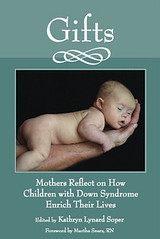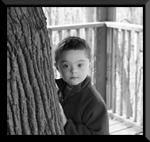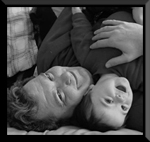When Nash was born and diagnosed with Down syndrome, once I was able to sit for a while upright (C-section ya know) I hit the internet. One website I continue to visit even almost 7 years later is Dr. Len Leshin's. Dr. Leshin is a pediatrician and the father of Avi who also has Down syndrome. As Dr. Leshin wrote on his website: "Avi has inspired me to write these essays about children with DS for other parents. I have put them here for general reading. You may E-mail me with any questions about these essays. I have also included some other pediatric items of interest for parents."
Here is one that interests me, as there is such a close correlation between Down syndrome and Alzheimer's. We contribute annually to the Alzheimer's research as well as to our Ds organizations. Dr. Leshin's comments follow the abstract below. It is heartening as I have read that all that have Ds also will have Alzheimer's. Yet another fallicy.
Down Syndrome Abstract of the Month: Dec 2007
Dementia and mortality in persons with Down's syndrome.
Coppus A, Evenhuis H, Verberne GJ, Visser F, van Gool P, Eikelenboom P, van Duijin C.
J Intellect Disabil Res. 2006 Oct;50(Pt 10):768-77.
Department of Epidemiology & Biostatistics, Erasmus MC, Rotterdam, the Netherlands.
Abstract:
BACKGROUND: Numerous studies have documented that persons with Down's syndrome (DS) are at an increased risk of Alzheimer's disease (AD). However, at present it is still not clear whether or not all persons with DS will develop dementia as they reach old age. METHODS: We studied 506 people with DS, aged 45 years and above. A standardized assessment of cognitive, functional and physical status was repeated annually. If deterioration occurred, the patients were examined and the differential diagnosis of dementia was made according to the revised Dutch consensus protocol and according to the ICD-10 Symptom Checklist for Mental Disorders. We compared our findings with those reported in the literature. RESULTS: The overall prevalence of dementia was 16.8%. Up to the age of 60, the prevalence of dementia doubled with each 5-year interval. Up to the age of 49, the prevalence is 8.9%, from 50 to 54, it is 17.7%, and from 55 to 59, it is 32.1%. In the age category of 60 and above, there is a small decrease in prevalence of dementia to 25.6%. The lack of increase after the age of 60 may be explained by the increased mortality among elderly demented DS patients (44.4%) in comparison with non-demented patients (10.7%) who we observed during a 3.3-year follow-up. There was no decrease in incidence of dementia in the age group of 60 and above. Our findings are very similar to those published in the literature. Patients with dementia were more frequently treated with antiepileptic, antipsychotic and antidepressant drugs. The history of depression was strongly associated with dementia. CONCLUSIONS: Our study is one of the largest population-based studies to date. We found that despite the exponential increase in prevalence with age, the prevalence of dementia in the oldest persons with DS was not higher than 25.6%.
My comments:
A very nice study, and one I hope will reassure a lot of parents and family members that Alzheimer disease (or "presenile dementia") is not an inevitability in adults with DS.
There was a distinct overlap of symptoms between depression and dementia. Depression must be ruled out first in adults with DS before making the diagnosis of dementia. Also, there was a very high prevalence of hearing and vision disorders, neither of which were associated with a diagnosis of dementia.
In this study, mortality was closely associated with the presence of dementia. In every age group up to 60 years of age, the mortality (or death rate) of those with dementia was twice that of those without dementia. After 60 years of age, there was no significant difference.
|
















0 comments:
Post a Comment